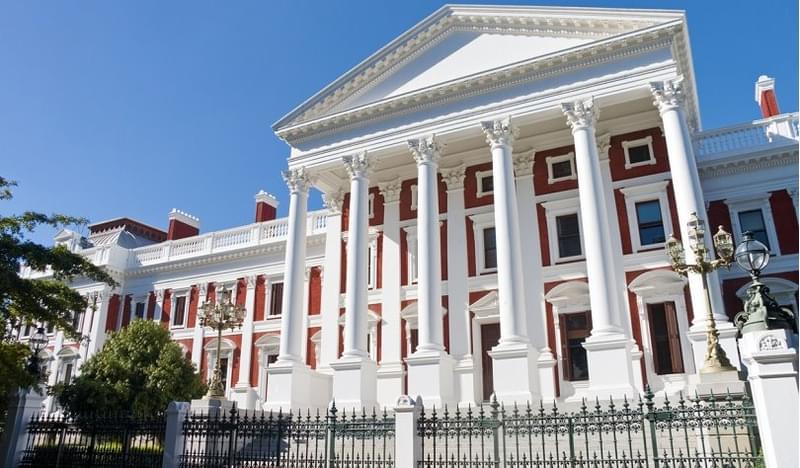Volatility returned with full force to South Africa’s currency and capital markets after the latest cabinet reshuffle by president Jacob Zuma led to the dismissal of finance minister Pravin Gordhan and his deputy Mcebisi Jonas. Later the same week, on Wednesday, the Director General Lungisa Fuzile, also announced his resignation.
Malusi Gigaba, who in the past served in the departments of home affairs and public enterprises, has been announced as Gordhan’s replacement.
Having peaked at 12.32 per USD on March 27, the rand has since continued on a downward trajectory and news of Gordhan’s dismissal put more pressure on the currency. On Tuesday, it reversed some of the losses, going 0.53% stronger against the dollar and it gained as much as 1.15% on Wednesday morning. But on the same afternoon it tumbled another 2.6%.
South Africa’s benchmark rand bond due December 2026 reversed gains, with the yield rising as much as 12bp to 9.03 and eventually settling at 8.97% by mid-afternoon.
Part of the losses can be attributed to the country losing its investment grade after S&P cut its foreign debt rating to BB+ with a negative outlook, while Fitch and Moody’s, at BBB- and Baa2, both signalled plans to reassess the sovereign’s rating. Local debt is rated at lowest investment grade (BBB-) by S&P and BBB-/Baa2 – respectively, one and two grades above junk.
While these developments put a shadow over the country’s SAR1.74tn local currency bonds and US$16bn FX debt, according to economist John Ashbourne at Capital Economics, the negative impact of the reshuffle is already being felt.
“Gordhan’s sacking showed that Zuma is undeterred and not really concerned by the impact of his decisions on the markets. He thinks it is important to follow through on his policy objectives rather than pay attention to market sentiment,” Ashbourne said.
According to the expert, the downgrade and ministerial changes have been priced into the market outlook in recent weeks, so in the short-term it is unlikely to be a big threat to the economic recovery. If anything, higher spending could actually have a net positive effect on the economy this year.
But local debt stands at a massive SAR1.74tn and 36% of it is owned by foreign investors, according to the National Treasury’s February budget review, while a further 10% of the country’s SAR2.2tn debt is held in hard currency bonds.
“The country’s debt position is a bigger concern right now: it is not awful - similar to other EMs like Colombia, Poland or Malaysia - but the trend is negative. Debt was growing even when Gordhan was in charge, so the question now is whether Gigaba might blow open the floodgates with a ZAR1tn nuclear project. Then things could take a turn for the worse quickly.”
The project referred to by the economist is an extremely costly nuclear power programme, estimated to be worth as much as SAR6tn, that would be developed in cooperation with Russia. Gordhan, along with the two opposition parties, centrist Democratic Alliance (DA) and left-wing Economic Freedom Fighters (EFF), have been strongly opposed to the proposal, calling it completely unnecessary and expressing concerns about corruption.
“Russia would play a part to build it, but it is not clear why South Africa would need such a project and the high costs would leave a lot of room for corruption. That is a big test – if Gigaba moves forward on this project, that would be a bad sign, particularly seeing as Zuma also replaced the Energy Minister and the Deputy Minister of Public works,” Ashbourne noted.
And a much greater uncertainty relates to how Gordhan’s successor will shape the economic policy; so far, the signs have been less than conclusive.
Gordhan, who was appointed in December 2015, following dismissals of two finance ministers over a seven-day period, has since earned a reputation for being a prudent and market-friendly finance chief, who helped the country avoid recession and a downgrade to junk. But his rising popularity and willingness to go against the South African leader’s policies appear to have made Zuma nervous enough to pull the trigger.
Who is Mr Gigaba?
While little is known about Gigaba’s economic views, at this stage he seems a lot more compliant and loyal to the president. He is also, on the surface, much more open to Zuma’s plans to tackle poverty and, in particular, support the disenfranchised black majority.
He even hinted that he may be on board with Zuma’s alleged plans to amend the country’s constitution to allow for the expropriation and redistribution of land without compensation.
“The ownership of wealth and assets remains concentrated in the hands of a small part of the population. That must change,” said Gigaba in a televised news conference, as reported by Reuters. “For too long, there has been a narrative or perception around Treasury that it belongs primarily and exclusively to ‘orthodox’ economists, big business, powerful interests and international investors. With respect, this is a people’s government.”
At the same time, in one of his first statements the new Treasury chief tried to reassure the markets, stating that the won’t be any sudden policy shifts.
"The assurance we can give is ... we are not a bunch of wild gunmen running amok, gung-ho into Treasury, to do different things. We are going maintain the programmes that are being implemented," Gigaba insisted.
“South Africa’s economy, with unemployment at 25% and huge wealth inequality gap, requires a lot of reform. But, so far at least, we don’t really have a good idea of what Zuma means by “radical economic reform,” Ashbourne commented.
“If they mean a land reform of some sort, that could be possible: there is already a programme in place base on the willing-seller/willing-buyer principle, with government facilitating the buying of land from wealthier people and redistributing to the rest of the population, but on a voluntary basis. Were they to simply nationalize farms on a large scale - the Zimbabwe approach - that would be disastrous, but we don’t expect them to do something as drastic as that.”
According to the economist, South Africa has a range of options at its disposal. Gigaba spoke recently that increasing preferences for black employees in the public service or increasing affirmative-action policies, which would mean simply extending some of the existing policies.
“But we are yet to hear any real proposals of a game-changing nature.”
“The market hopes to hear the right rhetoric: highlighting that Gigaba understands the problems and comprehends the fragility of the current debt position. He has, to an extent, already addressed some of these concerns, but also spoke about “radically transforming the economy” – and it’s unlikely that both of those issues can be tackled simultaneously,” Ashbourne concluded.
For the time being, South Africa’s debt is expected to remain manageable and the downgrade decisions, which tend to lag behind the market sentiment, are unlikely to lead to a major downturn. It is also quite possible that Gigaba will prove to be as skilled and effective an economist as his predecessor, or at least perfectly competent.
But one long-term and ever-growing risk remains, pushing away investors and worrying the country’s political elites: Jacob Zuma himself. The South African leader’s policies are becoming increasingly unpredictable and concerning for the markets, as was evident from the rand’s brief recovery halting after the ANC reluctantly supported Zuma’s reshuffle.
As he continues to rid the government those who oppose to his agenda, those crucial counterbalances that keep policy stable and the economy afloat gradually fade, leaving businesses, investors and South Africa’s 53 million-odd population anxious about the country’s future.









